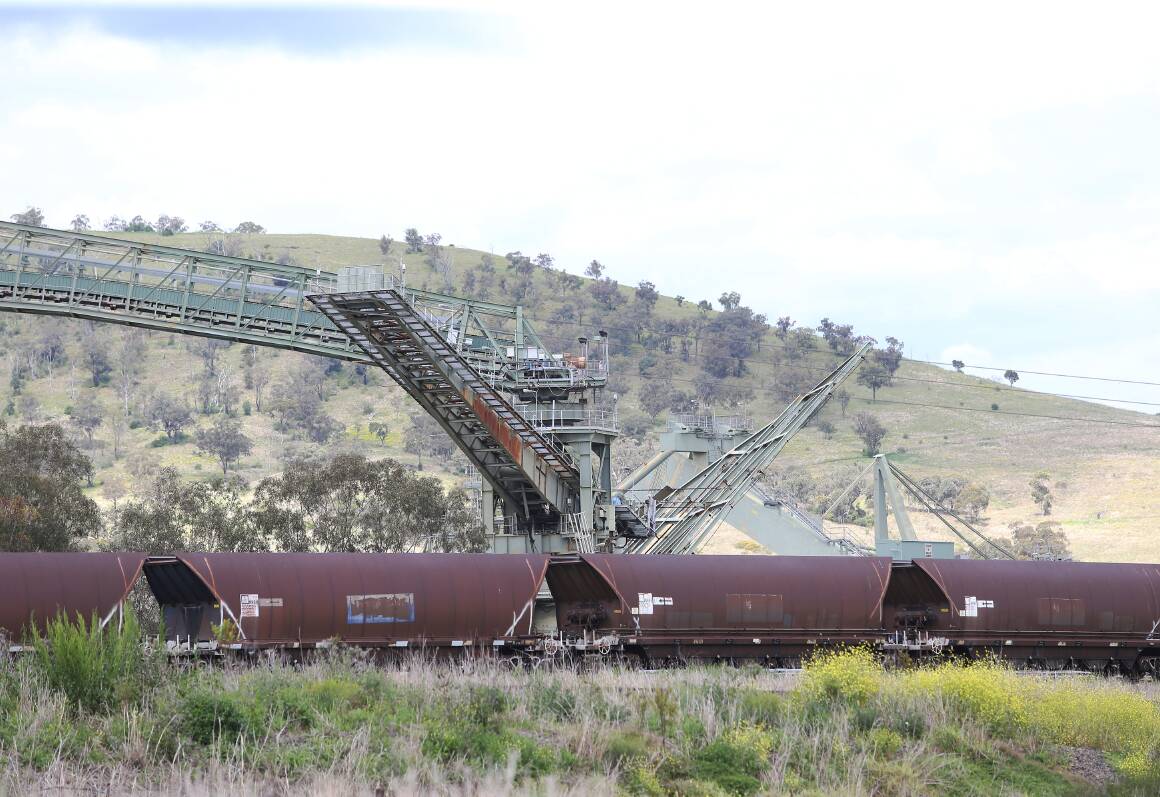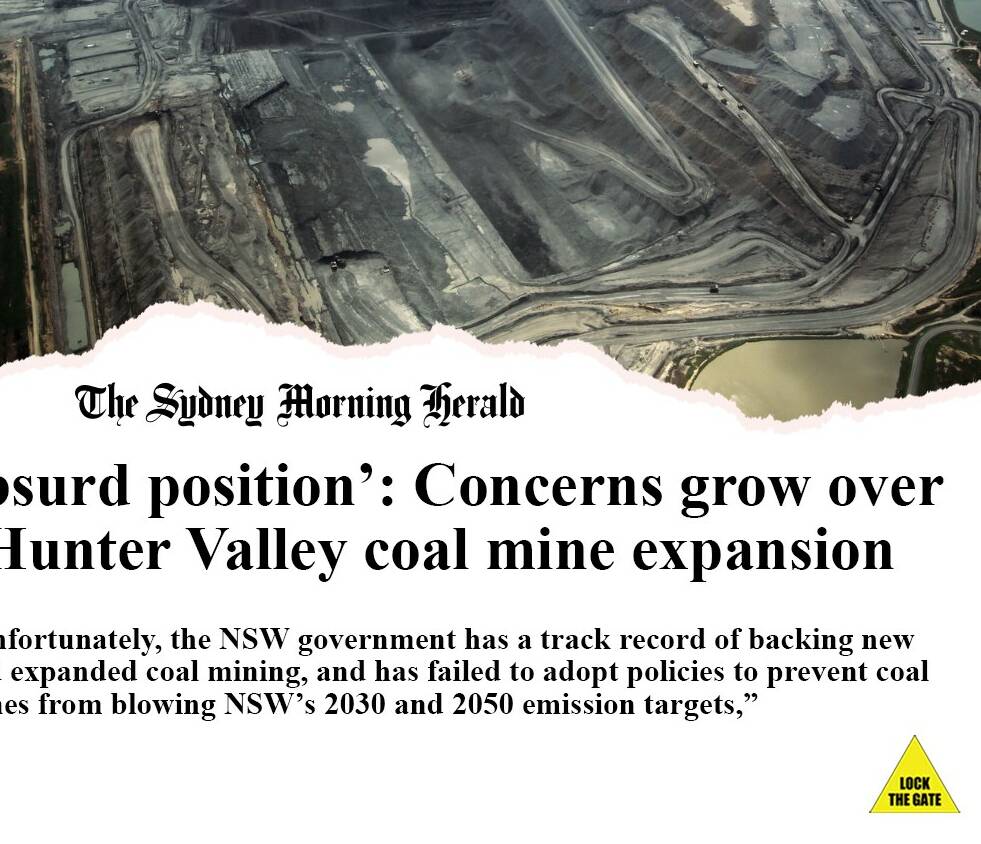
PROTEST group Lock The Gate Alliance says eight coalmining applications to extend or modify existing mines represents "the largest coal expansion since the Paris Agreement in 2016".
Lock The Gate coordinator Nic Clyde said the Perrottet government had "let the coalmining sector charge full steam ahead without restraint", but the industry peak body, the NSW Minerals Council, says mining approvals are harder than ever to achieve and that the bulk of the projects were "continuation" applications which were likely - if approved - to have far tighter conditions than was the case presently.
The eight projects are an extension of Newstan underground, the "pathway to 2030" project at Mount Arthur open-cut, a continuation of Hunter Valley Operations open-cut to 2050, a modification of mining at Boggabri open-cut, a two-year life extension at Chain Valley underground to 2029, a two-year life extension at Ulan underground and an extension of Moolarben open-cut and underground mine to 2034 within an existing approval to 2038.

Mr Clyde said the eight projects, if approved, would collectively be responsible for more than 1.5 billion tonnes of carbon dioxide equivalent - including scope three emissions from the use of the coal by its customers - describing this as "more than 10 times NSW's total emissions in 2019".
He said NSW had approved 26 coal and gas projects since the Paris Agreement came into force in November 2016, with combined emissions of 4.4 billion tonnes.
Responding, NSW Minerals Council chief executive Stephen Galilee said Lock The Gate was "once again misrepresenting the facts about the NSW coal sector".
"Since the current NSW Government was elected, the number of coal mines operating in NSW has actually fallen, from over 60 operating mines back in 2011 to 40 in operation today," Mr Galilee said.
"And while NSW coal production and exports have been fairly steady for a decade, emissions have fallen nearly 40 per cent since 2005."
To see more stories and read today's paper download the Newcastle Herald news app here.







